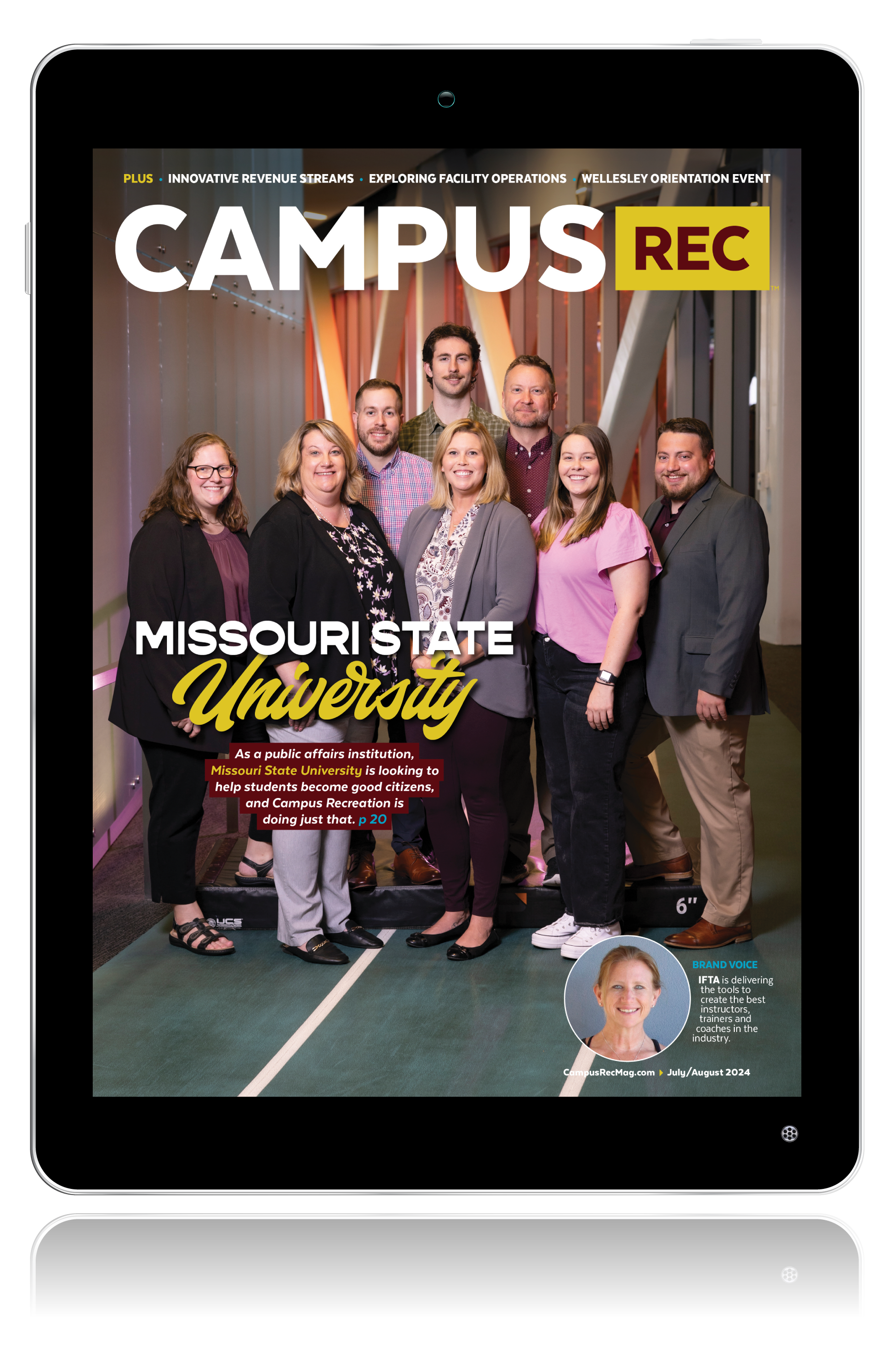The secret is out – just like when your favorite campsite location is disclosed – the newsfeeds have been filled with data supporting the correlation that being outside is good for your health. The industry verifying what we’ve known intuitively is like the satisfaction of a perfectly toasted s’more.
In 2018, a team of industry leaders (Stacy Bare, Chris Rutgers, Courtney Aber) examined how post-secondary institutions are working at the intersection of health and outdoor recreation. The team interviewed 12 member programs that have made major strides within the health and outdoor recreation space to identify the magic mix for success. A consensus was reached on five points:
- Outdoor recreation providers can play a greater role in positive outcomes for students’ health and wellness by linking campus health systems with outdoor recreation programs, both academic and extracurricular, that feature a range of activities from indoor/outdoor climbing to orientation trips and day/weekend/weeklong expeditions.
- Climbing walls and challenge courses typically allow outdoor education programs to connect with the greatest number of students and are seen as a means to address wellness concerns. These include providing students with a fun, alcohol-free alternative to late night partying – especially at the end of semesters; supporting town/gown relationships; and advancing DEI efforts, such as outreach to people of color, women, veterans, etc.
- Challenge courses enrich leadership and team building by offering direct engagement with the broadest cross-section of campus populations, especially when it comes to supporting online and distance learning candidates who may only visit the campus for a few weeks during the program.
- Freshman orientation programs have demonstrated success in improving student retention rates by 50% when an outdoor component is incorporated into the curriculum, prompting some universities to invest in more outdoor recreation offerings since it is often cheaper to retain existing students versus recruiting new ones. Additionally, time in the outdoors creates opportunities to teach positive habits and meaningful skills that students can apply in other areas of their lives.
- Outdoor expeditions are intimate and impactful with the power to unify a group of students regardless of differences in age, background, knowledge, ability, education focus and/or interests. Be it a backpacking trip or rafting adventure, the shared experience and learning of an activity has parallels for building confidence, embracing new ideas and perspectives, developing community and increasing resilience.
There is still much to understand about the complex intersection of health and outdoor recreation, and how it can help campuses expand programming, enhance learning and support student wellness. As research continues with the consulting team, there is mounting excitement for cross-sector collaboration and great potential exists for piloting programs that will lead to future replication within the industry. One thing is abundantly clear – outdoor recreation is a conduit for connection and growth. This is only the beginning.
By Jeannette Stawski, the executive director of the Association of Outdoor Recreation and Education (AORE). For more information, email jstawski@aore.org.










